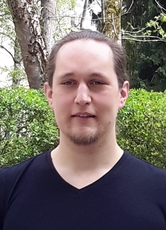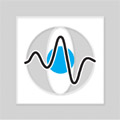
Dipl.-Math. Frank Schebesch
Alumnus of the Pattern Recognition Lab of the Friedrich-Alexander-Universität Erlangen-Nürnberg
Projects
-
Medical image reconstruction is an important tool for clinical diagnostics in order to provide 2D and 3D views of patients' inner organs. The image quality of the reconstructed volumes depends (often heavily) on both modifiable and intrinsic parameters of the imaging system and process. Additionally, image quality itself has to be understood in terms of image properties that are required for diagnosis which again is influenced by the personal sensation of the human observer.
In digital breast tomosynthesis (DBT) data acquisition is subject to several restrictions (limited angle, low dose) which makes optimal setting of the reconstruction parameters mandatory to achieve competitive image qualities. Mammographic images mainly serve as an instrument for early detection of breast cancer - the top cancer in women according to WHO (2014) [1]. Therefore the demand of optimal image quality in DBT necessitates bringing in line preservation and best possible detectability of lesions like microcalcifications, masses or spiculations with reduction of noise induced by the imaging system.
The goal of this project is to provide tools that can deal with multidimensional parameterspaces to estimate optimal reconstruction settings with respect to pre-defined observer requirements. Combination of techniques from machine learning with a parameterized reconstruction algorithm will be used to improve the diagnostic value of tomosynthesis images.
This project is carried out in cooperation with Siemens AG, Healthcare, Erlangen.
[1] World Cancer Report 2014, IARC, Lyon 2014.
-
E-learning has developed to an important tool in adult education. The requirements of more different learners' types can be met, and the modern lifestyle of students demands a flexible and accessible way of presenting educational material.
Online courses are built for this purpose. While the vhb already provides courses in a lot of subjects, the field of medical imaging is not yet present. The aim of this project is to develop a complete international online course teaching fundamental methods required to start research in medical image processing. In three main chapters about preprocessing, medical image reconstruction and rigid registration methods in 2D and 3D, the student will learn theoretic backgrounds, train mathematical concepts, and implement important algorithms. Thereby, the course contents are always motivated by diagnostic applications in use.
Among other things, the course features lecture videos and online testing of exercise submissions. In the final stage, this course will be added to the vhb portfolio as an ECTS credited course.
This project is funded by Virtuelle Hochschule Bayern (vhb).
-
Interventional imaging is a highly topical subject in medical imaging in which real-time applications and automated image analysis requirements demand advanced imaging algorithms. Nontrivial image features have to be extracted for further processing and often the image impression can be improved to a significant extent.
Extending the vhb online course "Medical Image Processing for Diagnostic Applications" (MIPDA), the mathematical and technical tools for segmentation, time-dependent reconstruction, differential imaging and many other methods are prepared and presented in a profound, flexible and easy-to-learn fashion in the new format of an online course.
E-learning has developed into an important tool in adult education. This project includes the creation of high class digital learning material that prepares international students to start their own research in medical image processing.
Including topics such as feature detection, image enhancement, deep learning, segmentation, and non-rigid registration, the student will learn about theory, train mathematical concepts, and implement relevant algorithms. The course contents are always motivated by their clinical applications.
Among other things, the course features lecture videos and online testing of exercise submissions. In the final stage, this course will be added to the vhb portfolio as an ECTS credited course.This project is funded by Virtuelle Hochschule Bayern (vhb).

 +49 9131 85 28982
+49 9131 85 28982
 +49 9131 85 27270
+49 9131 85 27270

